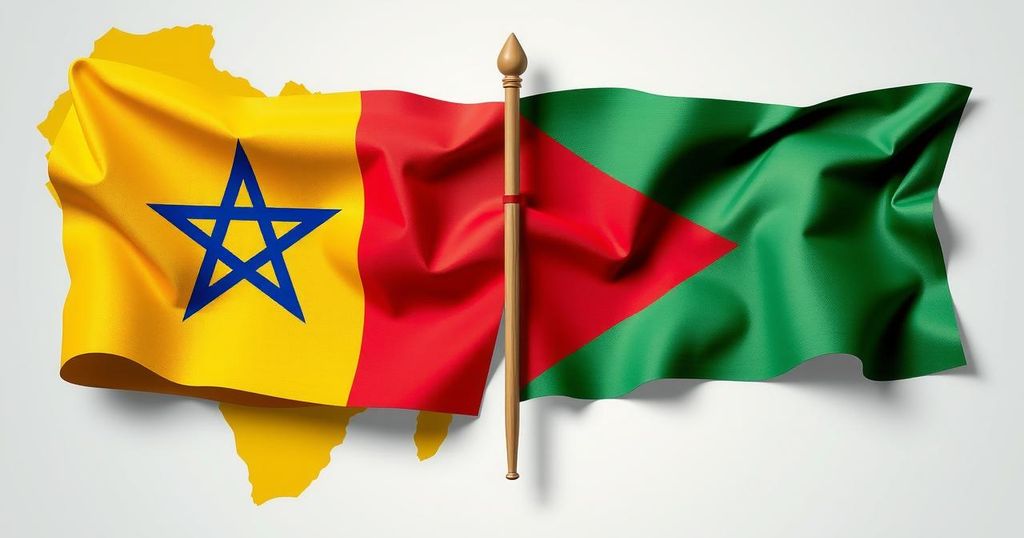On December 11, 2024, the Ankara Declaration was signed by Somalia and Ethiopia, facilitated by Türkiye, aiming to foster peace and cooperation in the Horn of Africa. However, skepticism exists regarding the sincerity of the agreement, particularly from Somali observers concerned about Ethiopia’s territorial ambitions. The negotiations starting in February 2025 will focus on ensuring economic collaboration through infrastructure development while navigating historical grievances and security concerns in the region.
The Horn of Africa States, particularly Somalia and Ethiopia, engaged in significant diplomatic progress on December 11, 2024, marked by the signing of the Ankara Declaration, facilitated by Turkish President Recep Tayyip Erdogan. Leaders President Hassan Sheikh Mahmoud and Prime Minister Abiye Ahmed Ali symbolically turned away from conflict toward a commitment to peace and cooperation. However, skepticism abounds regarding the sincerity of the agreement, particularly from Somali observers who view Ethiopia’s historical territorial ambitions with suspicion.
Critics within Somalia perceive the agreement as a capitulation, arguing that Ethiopia continues to encroach upon Somali territory, specifically the region known as Western Somalia. They contend that historical grievances, including territorial claims by the Ethiopian state, render the accord questionable and that Türkiye should have urged Ethiopia to adhere to international law instead. Furthermore, the Ethiopian opposition fears that Prime Minister Ahmed has compromised national ambitions for maritime access through these negotiations.
Amidst external pressures from Türkiye, both leaders demonstrated a willingness to collaborate; however, the implications of the Ankara Declaration warrant careful consideration, especially regarding Somalia’s autonomy over its borders and resources. The negotiations set to commence in February 2025 include plans for commercial access to Somali coastlines for Ethiopia, an endeavor that could spur economic collaboration through infrastructure development.
Nevertheless, ensuring the successful integration of these plans necessitates expert negotiation teams and time to establish frameworks conducive to long-term partnerships. The region’s complex historical context demands that future agreements extend beyond immediate political agendas, aiming instead for sustainable and effective cooperation.
Additionally, the introduction of Ethiopian naval ambitions raises concerns among Somalis about security within their territorial waters. There is a prevailing sentiment that trust between the two nations is fragile, requiring careful management of maritime economic initiatives. Both nations need to ensure that the management of critical infrastructures respects Somalia’s sovereignty while acknowledging Ethiopia’s aspirations.
In summary, the Ankara Declaration presents a pivotal moment for Somalia and Ethiopia, offering a potential avenue for peace and economic integration in the Horn of Africa. By engaging constructively, the two countries may not only stabilize their relationship but also foster broader regional cooperation, enhancing the lives of their citizens and contributing to long-term prosperity.
The Horn of Africa represents a strategic and geopolitically tense region, with historical conflicts between neighboring nations, particularly between Somalia and Ethiopia. The Ankara Declaration symbolizes a notable diplomatic effort to mitigate tensions and foster collaboration, with Türkiye acting as a mediator. The agreement underscores ongoing disputes regarding territorial integrity, ambitions for maritime access, and longstanding grievances within the region. It comes at a crucial time with shifting political landscapes and aspirations for economic development underpinned by infrastructure projects and trade enhancements.
In conclusion, the Ankara Declaration signifies a watershed moment for diplomatic relations between Somalia and Ethiopia, reflecting both the potential for and challenges of collaboration within the Horn of Africa. While the agreement offers immediate opportunities for peace and economic integration, the historical context and underlying tensions necessitate a cautious and well-structured approach to negotiations in the upcoming months. The sustainability of this accord will depend on fostering trust, ensuring mutual respect for sovereignty, and prioritizing the long-term well-being of both nations.
Original Source: www.eurasiareview.com






